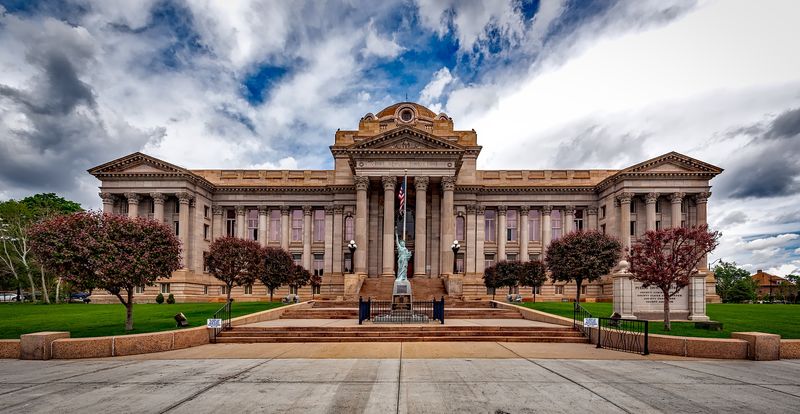Criminal Justice: Scot Peterson Found Not Guilty in Parkland Shooting Case
Introduction
In a highly anticipated trial, Scot Peterson, the former sheriff’s deputy who was present at Marjory Stoneman Douglas High School during the Parkland shooting in 2018 but did not confront the gunman, has been found not guilty of child neglect and other charges. The jury deliberated for several days before reaching their verdict, which sparked mixed reactions from the public, particularly the families of the victims.
The Trial and Verdict
Scot Peterson, now 60 years old, faced charges related to the deaths and injuries that occurred during the Parkland shooting. The trial garnered significant attention due to the devastating nature of the attack and the subsequent debate surrounding effective responses to mass shootings. Peterson, who was visibly emotional, expressed relief upon hearing the not guilty verdicts, stating that he feels like he has “got [his] life back.”
The trial’s outcome has left some questioning the accountability of law enforcement officers during such critical incidents. Peterson’s attorney, Mark Eiglarsh, hailed the verdict as a victory for all law enforcement officers, asserting that prosecutors should not second-guess the actions of those who serve and protect. On the other hand, members of the community, including Tony Montalto, whose daughter was killed during the shooting, expressed disappointment, believing that justice has not been served.
Philosophical Discussion: Duty and Accountability
The acquittal of Scot Peterson raises profound philosophical questions about the role and responsibility of law enforcement officers in the face of mass shootings and similar crises. It forces us to consider the complexities and moral dilemmas that arise when individuals entrusted with public safety are confronted with high-stakes situations.
On one hand, society expects law enforcement officers to be heroes who put their lives on the line to protect others. However, it is vital to recognize that these personnel often face unimaginable pressure and have limited information in the midst of chaotic and confusing events. In such situations, making split-second life-or-death decisions becomes immensely challenging. Peterson’s defense argued that he did not have precise knowledge of the shooter’s location and that his actions were a result of this uncertainty.
Analysis of Peterson’s Actions
The trial highlighted video evidence that showed Peterson did not actively confront the shooter and instead took cover for approximately 48 minutes during the attack. This evidence undoubtedly played a significant role in the jury’s deliberations. However, it is essential to scrutinize Peterson’s actions against the backdrop of the fear and confusion that gripped the school during the shooting.
While it is clear that Peterson’s inaction raises questions about his duty to protect the students and staff, it is also crucial to examine whether criminal charges such as child neglect are the appropriate legal response to his perceived failures. Peterson’s defense attorney argued that the blame should solely rest on the perpetrator, Nikolas Cruz, and that it is unfair to hold Peterson accountable for the tragic outcome.
Editorial: A Call for Comprehensive Solutions
The acquittal of Scot Peterson forces us to confront the larger issues surrounding school shootings and mass violence prevention. Rather than simply assigning blame to individuals like Peterson, it is essential to address the systemic failures and shortcomings that contributed to the Parkland tragedy.
One of these failures lies in identifying and addressing mental health issues that lead to such acts of violence. Improved access to mental health services, along with early intervention and prevention strategies, can support individuals in crisis before they escalate to committing horrific acts.
Additionally, stricter gun control measures have been advocated by students and activists following the Parkland shooting and other similar incidents. This ongoing debate raises critical questions about balancing Second Amendment rights with public safety concerns. Finding a middle ground that respects individual liberties while preventing dangerous individuals from accessing firearms is a complex challenge that requires open-minded dialogue and evidence-based policies.
Advice: Community Healing and Support
For the families affected by the Parkland shooting, the acquittal of Scot Peterson undoubtedly reopens painful wounds. It is essential for the community and society as a whole to offer support, empathy, and resources to those who continue to grieve and seek justice for their loved ones. Healing from such a tragic event takes time and requires a collective effort from all stakeholders involved.
In conclusion, the acquittal of Scot Peterson in the Parkland shooting case carries profound implications for our understanding of duty, accountability, and the dynamics of mass violence prevention. It calls for a comprehensive approach to addressing the underlying factors that contribute to these tragic events while also recognizing the complexities and challenges faced by those tasked with protecting society.

<< photo by Life Matters >>
The image is for illustrative purposes only and does not depict the actual situation.
You might want to read !
- Jury Acquits Scot Peterson: The Troubling Implications for Accountability in Law Enforcement
- “Beyond the Spotlight: Analyzing the Implications of the Kevin Spacey Sex Assault Trial in London”
- Exploring the potential aftermath of UFC 289: Nunes vs. Aldana and Oliveira-Dariush live
- “The Witcher season 3 volume 1 review: Crafting an Epic Path towards Henry Cavill’s Fiery Finale”
- The Aspartame Debate: Exploring the Presence of this Controversial Ingredient in Everyday Food Products
- Kelsea Ballerini Hit in Face By Unseen Threat: Reflecting on the Safety of Performers
- The Controversial Connection: Investigating the Potential Link Between Aspartame and Cancer
- “Turbulence in Sin City: Exploring the Golden Knights’ Risky Moves”




